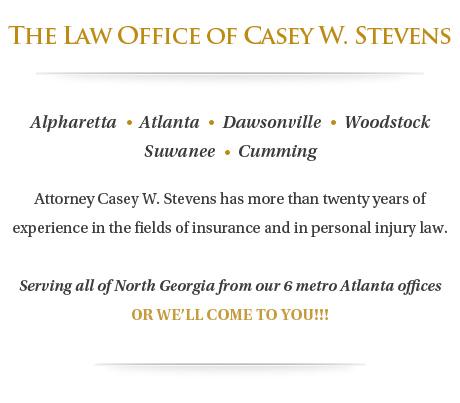In Verdicts & Settlements Recovered
Statute of Limitations in the State of Georgia Attorney
I Googled “Georgia Statute of Limitations” just to see what I could find easily on the subject and was rewarded with 1.4 MILLION results. Unless you are in law school and trying to impress your professor, you don’t have time to dig through all of that. So, I am going to try to simplify this as much as I can, but since each case is different, you should always consult an attorney regarding your specific case if you have any questions.
First off, What is a “Statute of Limitation?”
The statute of limitations refers to the amount of time that the law allows for an individual to be prosecuted for a crime or to pursue legal action against companies or individuals who may have caused them injury or harm. If you fail to file a lawsuit within the limit, you forfeit your right to pursue compensation for your injuries FOREVER. These time limits can vary from state to state (or federally) and depend upon the offense in question. In general, the Georgia statute on personal injury claims is two years. If you think that you may have a claim for personal injury, check to be sure that you are within the time limit allowed by state law to pursue legal action; however, you should also be aware that the law is a living breathing entity that changes all of the time (which is why you should always consult an attorney). Also, there are some exceptions to the rules…
So, When Does it Start?
Logic would tell you that your countdown clock for filing a lawsuit begins upon the date that you were injured. In most cases, this is true. For example, let’s say that you were injured in a car accident because Mr. X ran a stop sign, and he received a ticket for his traffic violation. While a quick Google search will tell you that you have 2 years to file a personal injury claim against Mr. X and his insurance company, what it may not point out is that thanks to a supreme court ruling from September 2009, your two years do not begin on the date of the injury, but rather upon the resolution of the at fault party’s traffic citation. If it takes 45 days to resolve the citation, then your time frame is extended by 45 days. In legal speak, the statute of limitations has been “tolled” (which is just a fancy way of saying “extended”).
What About “The Rule of Discovery?”
The Rule of Discovery is simply that – your countdown clock begins upon the discovery of the harm or injury and not when it actually may have occurred. Things like medical malpractice, worker’s compensation, product liability, and other types of personal injuries may not be immediately apparent and in some cases may not become evident for years after the actual injury occurred. The law allows you to seek compensation once the injury is discovered or should have reasonably been discovered.
What if I Want to sue a Government Agency?
Successfully recovering on a lawsuit against a government entity is much more difficult than recovering damages against an individual or a private company. The reason for this is that government entities are often immune from civil liability. And, even in cases where governmental immunity has been waived by the government, there are other forms of immunity that make such cases more difficult. In addition, ante litem (or pre-suit) notice is required before suing a government entity. And, if an ante litem notice is not given within the required time period, you will not be permitted to file a lawsuit against that entity. In Georgia, the ante litem statutes require notice to a county or state government within one year; notice to a city government is required within six months.
The bottom line is that you should always consult an attorney if you think that you have a viable claim. A good attorney will help you navigate the legal system and will be brutally honest with you about your chances. Most reputable attorneys will have your case reviewed by an associate (for free) to determine its merit before they meet with you. For your convenience, I have included a list of some of the most common Civil Georgia Statutes of Limitations, but because of “tolling” and the “Rule of Discovery” that I mentioned before, this should only be used as a guide before you contact your attorney.
| Description | Standard Statute of Limitations |
|---|---|
| Contract (written) | 6 Years |
| Contract (oral, not in writing) | 4 Years |
| Legal Malpractice | 4 Years |
| Property Damage | 4 Years |
| Medical Malpractice | 2 Years |
| Assault | 2 Years |
| Personal Injury | 2 Years |
| Product Liability | 2 Years |
| Wrongful Death | 2 Years |
| Fraud, Libel, or Slander | 1 Year |









